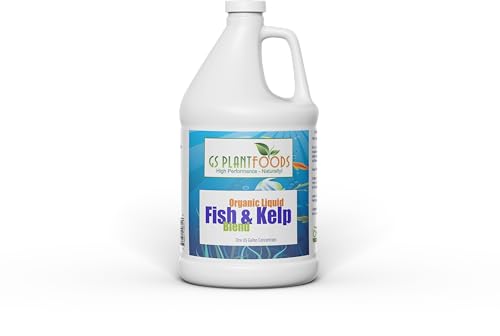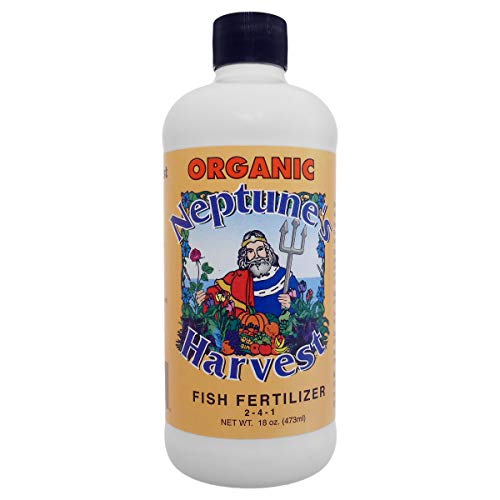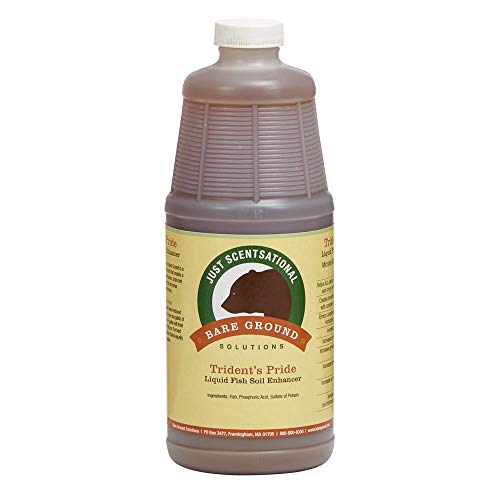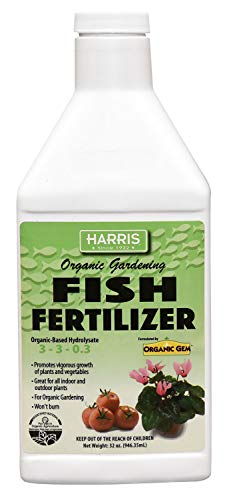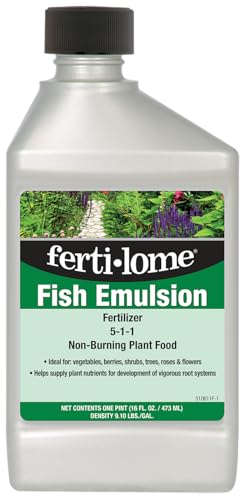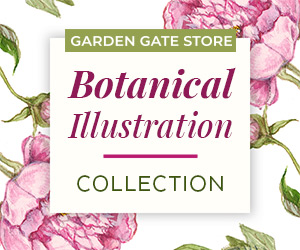Fish fertilizers stand out among all of the available fertilizer options because of their unique and unparalleled benefits for plant growth and soil health. It helps improve soil fertility and health and supplies plants with vital nutrients like calcium, magnesium, and potassium. Because they are derived from the natural byproducts of fish, they are environmentally friendly and safe for organic gardening. Fish fertilizers come in different forms and formulas that are great for all garden types; you just have to find the one that works best for your garden! We researched the best fish fertilizers and found that GS Plant Foods Fish Fertilizer is organic and sustainable- leading to larger crop yields and healthier (and happier) plants.
Our Top Picks For Fish Fertilizers
The Best Fish Fertilizer: A Buyer's Guide
Having a healthy garden is all about having healthy soil, and one of the best ways to improve your soil’s health and productivity is to use fish fertilizer. Fish fertilizer is derived from fish emulsion and is a great way to provide your garden with all the nutrients it needs to thrive. but it can be overwhelming to decide which product is suited for your garden’s soil. So, when choosing a fish fertilizer to increase soil fertility, there are a few factors to consider — let’s take a look!
How To Choose the Right Fish Fertilizer
Nutrient content
Before purchasing, take the time to read the label of any fish fertilizer and determine the levels of macronutrients (nitrogen, phosphorus, and potassium) and micronutrients like copper, iron, and manganese. This will help you understand exactly what you’ll be adding to your soil and ensure it meets your fertilization requirements.
Organic or non-organic
Before buying fish fertilizer, it’s important to consider whether organic or non-organic fish fertilizers suit your needs. Organic fertilizers tend to be better for the environment as they don’t contain any synthetic ingredients, but synthetic products may be more cost-effective for large-scale applications.
Application rate
Ensure you know the amount of fertilizer recommended for use with your soil before purchase. Soil fertility can be damaged by applying either too little or too much fertilizer, so be careful.
Effect on soil pH
Take into account how much the pH level of the fertilizer may affect your existing soil pH balance if it differs from what it recommends, as this could potentially damage plants or crops if it alters the nutrient availability in the soil too much.
Concentration
If you plan to buy a liquid fish fertilizer, consider what type of container it comes in and how concentrated it is. You may need to dilute it before application depending on your soil’s requirements, so bear this in mind when choosing a product.
Formula
Some fish fertilizers come in granulated form, while others come in pellets that make it easier to apply them directly onto the soil. Determine which will work for your garden and check any additional instructions that may come with it before making a purchase.
Potency
Consider how much of each nutrient and mineral is present to determine how potent your fish fertilizer is. This will help you decide how often you should use it and how much to use each time.
Ease of use
It’s essential to consider whether the fish fertilizer you want to purchase is easy to use. If you’re unsure about how to use it, you may apply it incorrectly and harm your plants. So, always check that the instructions are easy to follow and that the container is easy to handle. Additionally, consider if additional equipment, such as measuring spoons or syringes, is needed to apply it correctly.
People Also Asked
Are fish fertilizers safe to use in my garden?
Yes, fish fertilizers are generally safe to use. They are made of natural materials such as fish bones, organs, and scales, and have been used for centuries in traditional farming practices. That said, it's important to read the product labels and follow the instructions on the packaging to ensure proper safety precautions are followed.
How do I determine which fish fertilizer is perfect for my needs?
The ideal fertilizer for your particular needs will depend on several factors, including the type of soil you have, the type of plants you are growing, and the desired outcome from using the fertilizer. Additionally, you should take some time to learn about the many fish fertilizers on the market before deciding which to buy.
What ingredients should I look for in a good fish fertilizer?
A good fish fertilizer should contain natural ingredients such as fish bones, organs, scales, and other essential nutrients that help promote the growth of flower and vegetable plants. It is important to read the label and make sure that no artificial additives or chemicals are present.
Are there any natural fish fertilizers available?
Yes, there are several natural fish fertilizers available on the market made from natural sources such as fish bones, organs, and scales. These types of fertilizers are generally considered more environmentally friendly than synthetic ones and can be applied directly to the soil or mixed with water for application as a liquid solution.
How often should I apply fish fertilizer to my plants?
The frequency of application will depend on various factors such as soil type, plant type, climate conditions, and the desired outcomes you want from using a particular fertilizer. Generally speaking, it is recommended to apply most fish fertilizers at least once every two weeks during the growing season or more frequently if needed.




